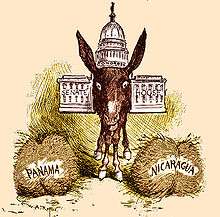Fredkin's paradox
Fredkin's paradox concerns the negative correlation between the difference between two options and the difficulty of deciding between them. Developed further, the paradox constitutes a major challenge to the possibility of pure instrumental rationality.
Proposed by Edward Fredkin, it reads: "The more equally attractive two alternatives seem, the harder it can be to choose between them—no matter that, to the same degree, the choice can only matter less."[1] Thus, a decision-making agent might spend the most time on the least important decisions.
An intuitive response to Fredkin's paradox is to calibrate decision-making time with the importance of the decision: to calculate the cost of optimizing into the optimization. However, this response is self-referential and spawns a new, recursive paradox: the decision-maker must now optimize the optimization of the optimization, and so on.[2]
See also
References
- ↑ Minsky, Marvin (1986). The Society of Mind. New York: Simon and Schuster. p. 52. ISBN 0-671-60740-5.
- ↑ Klein, Gary (2001). "The Fiction of Optimization". In Gerd Gigerenzer, Reinhard Selten. Bounded Rationality : The Adaptive Toolbox (1 ed.). London: MIT. pp. 111–112. ISBN 0-262-57164-1.
Thus, if I want to optimize, I must also determine the effort it will take to optimize; however, the subtask of determining this effort will itself take effort and so forth into the tangle that self-referential activities create.
